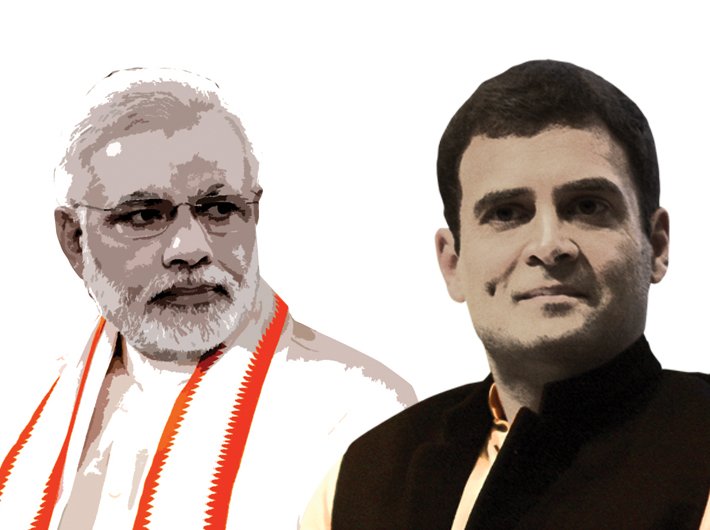Narendra Modi has finally emerged as the architect of unity – of opposition unity, that is. Though it took the Congress and other non-NDA parties four years to learn this lesson, it has come just in time for the grand elections scheduled next year. So, one theory states: As the troubles on the economic and other fronts are piling up and the government is apparently losing its rapport with people, if the non-NDA parties join hands defeating Modi will not be too difficult. Each of the elements making up this theory is worth checking.
The claim that the NDA government is now facing the fifth-year fatigue suffered by many popular governments of the past is true. Just as the disparate opposition parties are coming together, the NDA is breaking up, with even the earliest and diehard natural ally Shiv Sena playing truant. Other, seasonal friends like TDP have crossed the fence. One alliance, a rather forced one, stands broken in Jammu and Kashmir. The NDA itself, thus, is not in the best of health.
But then, among the top political leaders, Modi remains head and shoulders above the rest in pan-Indian popularity. Going by his track record in Gujarat, in 2014, and in a series of state elections since, one can surmise that he would like go the polls seeking a mandate for himself, and not for his government. He will urge people to vote for ‘Modi Sarkar’, and not for the BJP, with whom many of its supporters are not happy. In such a presidential kind of election, centred on personalities, Modi will have little difficulty in trouncing an inexperienced Rahul Gandhi.
As for the opposition, yes, they seem to have discovered the virtues of unity, especially after the two batches of by-elections in Uttar Pradesh, where an electoral understanding between the SP and the BSP has conclusively defeated the BJP – an unimaginable feat within a year of its grand victory in the politically most crucial state. If the duo had united in time, the vote figures show, that the BJP would not have won in March 2017 itself.
The argument against the opposition is that they are a motley crew, that they have nothing in common among them beyond saving their respective turfs in the face of a repeat of the Modi wave albeit on a smaller scale. Of course, it would be an opportunistic alliance. Of course, Mulayam and Mayawati can have no common minimum programme beyond saving their respective turfs in the face of an aggressive Modi wave. Their alliance is like that of BJP and PDP in Jammu and Kashmir, and can be betted upon to last no longer than that. But before their interests clash and the breakup plays out in the open, they would have defeated the BJP, which should worry the party in power.
The opposition unity is a work in progress, and there are many challenges ahead. There are regional equations to consider, for one. Also, this will be a test of Rahul Gandhi’s political acumen, if the Congress by default takes lead in sewing it all up. But since none of the challenges happens to be as big as Modi, it should be doable simply by the force of the survival instinct.
Also, the motley-crew phenomenon won’t be a first: it has happened many times, for example, in 1977 and 1989 – with the BJP in it, once even supporting a government that was also propped up by the Left. Thus, in short, there is safety in numbers and in the face of a larger-than-life-size leader the rest can have a safe strategy in ganging up together.
This exposition of the opposition-unity theory, however, puts arithmetic above ideology, cold electoral numbers over voter mindset. Thus, it is simplistic and naïve. The numbers (for BJP, in 2014) came later, first came a concrete proposition. It was a hope mixed with unbearable need for change backed by a majoritarian undercurrent. Four years later, even if the element of hope can no longer be part of the election equation, do people yearn for a change that way they did in 2011-14? Has the majoritarian voter changed his mind?
Unless the Congress – alone or in company – offers another concrete proposition, it stands little chance. And it is not in a position to offer it, because in articulating an alternative narrative, Rahul Gandhi will have to negotiate all the burden of family history. He is yet to show the conviction and readiness to make reparations, be it the institutional damage or economic mismanagement his party stands accused of. He, or for that matter any other opposition leader, is yet to offer a track-record-based counter to Modi’s discourse. If we are living in illiberal times, we are yet to see a cent-percent liberal leader.
Till then, even if purely numbers decide the outcome, we will have to remain prepared for a return and an implosion.
(The article appears in the July 15, 2018 issue)

